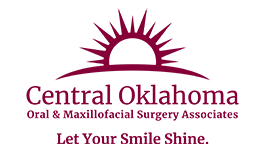05 Feb Tooth Extraction: Common Questions And Answers
 Patients who are consulting with an oral surgeon about a tooth extraction may never have undergone an oral surgery procedure in the past. They often have numerous questions. We’ve compiled some of the most common questions posed by patients who are facing surgical tooth extractions, along with their answers.
Patients who are consulting with an oral surgeon about a tooth extraction may never have undergone an oral surgery procedure in the past. They often have numerous questions. We’ve compiled some of the most common questions posed by patients who are facing surgical tooth extractions, along with their answers.
When is surgery needed to extract a tooth?
When a tooth is impacted, which means that it is surrounded with bone and gum tissue and cannot erupt properly into the jaw, it must be removed surgically. The oral surgeon will need to remove the surrounding tissue before accessing the tooth. While any tooth can become impacted, the wisdom teeth are most often affected by this issue due to their large size and relatively small jaws of modern humans.
Tooth Extraction FAQs
- Why do I need to have my wisdom teeth surgically extracted? The wisdom teeth are the most likely to become impacted because most people don’t have enough room in their jaws for them to erupt properly. Therefore, they need to be extracted surgically so that the bone surrounding them can also be removed and the surgeon can then remove the tooth.
- What problems can arise with impacted wisdom teeth? Impacted wisdom teeth can become problematic in many ways. They are prone to developing infections and abscesses as well as cysts and tumors. Impacted wisdom teeth may also cause discomfort and damage surrounding teeth or push them out of place as they continue to try to erupt.
- If my wisdom teeth aren’t causing any problems, why do I need to have them extracted? It’s impossible to predict when impacted wisdom teeth will become symptomatic, so many patients opt for a preventive extraction to avoid those consequences. Also, it is preferred that patients have their wisdom teeth extracted before age 25 because the procedure is more straightforward in younger people.
- How can I prevent post-extraction complications? Your surgeon will give you detailed post-operative instructions for taking care of the extraction sites. Follow those instructions closely in order to reduce your risk of issues like dry sockets or infections, and don’t hesitate to ask if there’s any aspect of the instructions that is unclear to you or that you don’t understand.
We encourage you to call our office and ask any other questions you may have about tooth extraction, or bring them up at your consultation. We want to make sure that you have all of the information you need, so that the process can go as smoothly as possible for you.
